
Europe and Central Asia – Regional Overview of Food Security and Nutrition 2023
Publication Series
Publications
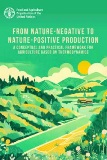
From nature-negative to nature-positive production: A conceptual and practical framework for agriculture based on thermodynamics
10/2023
This document discusses the inherent functioning of agroecosystems by analysing how ecosystems naturally develop their own sustainability and productivity; it concludes that the most critical systemic features in this regard are complexity, energy storage and energy mobilization capacities.
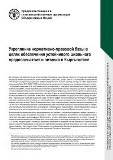
Strengthening regulatory frameworks for sustainable school food and nutrition in Kyrgyzstan
09/2023
This brief examines some of the key legal considerations related to school gardens, and also explores regulatory options for strengthening the legislative environment for sustainable school food and nutrition in the country.
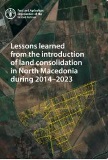
Lessons learned from the introduction of land consolidation in North Macedonia during 2014–2023
09/2023
This publication aims to document and share the lessons learned from the introduction of a land consolidation instrument in North Macedonia from 2014 to 2023. The structural problems in agriculture with small average farm sizes, excessive land fragmentation, water scarcity, need for modern irrigation systems, gaps in land policy, land banking, and weak agricultural land markets are also present in several countries.
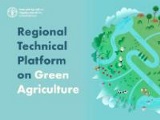
Regional Technical Platform on Green Agriculture
08/2023
The brochure provides an introduction to the Regional Technical Platform on Green Agriculture, which is a digital, user-friendly, open, intraregional and interregional gateway for sharing information. It is a knowledge repository that facilitates connections among expert networks regarding various technical areas related to green agriculture. The brochure outlines the main features of the RTP and provides guidance on getting involved.
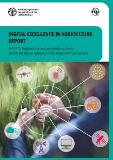
Digital excellence in agriculture report
06/2023
This report is the outcome of the Digital Excellence in Agriculture: FAO-ITU regional contest on good practices advancing digital agriculture in Europe and Central Asia, organized by the Food and Agriculture Organization of the United Nations (FAO) Office for Europe and Central Asia and the International Telecommunication Union (ITU) Offices for Europe and Commonwealth of Independent States (CIS).
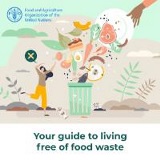
Your guide to living free of food waste
06/2021
On average, a person wastes 74 kg of food each year, which amounts to 570 million tonnes. While the number is staggering, each of us can make a difference by taking small actions every day, by changing wasteful habits with new sustainable behaviour.
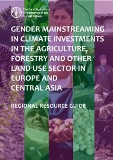
Gender mainstreaming in climate investments in the agriculture, forestry and other land use sector in Europe and Central Asia
06/2023
This resource guide aims to support decision-makers, development practitioners, trainers and civil society organizations representing both farmers and rural women in designing and implementing climate investment projects and programmes in the Europe and Central Asia Region. It features a practical conceptual framework to enhance gender mainstreaming in climate investment programming with a particular emphasis on the Green Climate Fund and Global Environment Facility modalities.
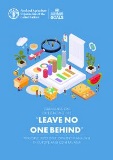
Guidelines on integrating the “leave no one behind” principle into development planning in Europe and Central Asia
06/2023
The imperatives to leave no one behind (LNOB) and endeavour to reach the furthest behind first – as pledged by the 193 Member States of the United Nations in the 2030 Agenda for Sustainable Development and its Sustainable Development Goals (SDGs) – are gaining more traction among development practitioners as we approach the midpoint towards the 2030 deadline.
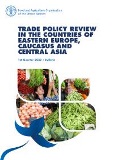
Trade policy review in the countries of Eastern Europe, Caucasus and Central Asia. 1st Quarter 2023 | Bulletin
05/2023
This quarterly bulletin features agricultural trade policy changes in the region. It provides current trade measures, agreements, statistics and articles by experts covering trade-related issues in countries across the region, and it is sent to members of the Agricultural Trade Expert Network.
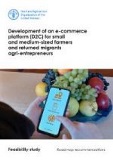
Development of an e-commerce platform (D2C) for small and medium-sized farmers and returned migrants agri-entrepreneurs
02/2022
The feasibility study looks into the e-commerce ecosystem for agricultural products (D2C model) and examines the feasibility of developing a dedicated e-commerce platform for Moldovan farmers, including returning migrants engaged in agri-business. It also focusses on identifying the opportunities, optimal scenarios and interventions, as well as the premises needed to either launch a new e-commerce platform, or develop and upscale an existent one
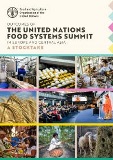
Outcomes of the United Nations Food Systems Summit in Europe and Central Asia - A stocktake
04/2023
In this paper, we aim to synthesize and analyse the focus, results and main issues emanating from the United Nations Food Systems Summit (UNFSS) in the region of Europe and Central Asia. In particular, the focus is the 17 FAO programme countries in the Western Balkans and Türkiye, Caucasus and CIS Europe, and Central Asia (ECA-17).
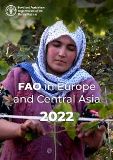
FAO in Europe and Central Asia 2022
04/2023
The new FAO Strategic Framework 2022–2031 focuses on what are called the four betters – better production, better nutrition, a better environment and a better life. In each of the FAO programme countries and territories in Europe and Central Asia, the Organization and its many partners achieved great success in 2022 in advancing towards the four betters. This report provides a snapshot of these important efforts and achievements.
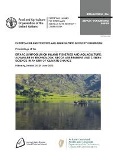
Proceedings of the EIFAAC symposium on inland fisheries and aquaculture: advances in technology, stock assessment and citizen science in an era of climate change
03/2023
The international symposium on “Inland Fisheries and aquaculture: advances in technology, stock assessment and citizen science in an era of climate change” was organized in conjunction with the thirty-first session of the European Inland Fisheries and Aquaculture Advisory Commission in Killarney, Ireland on 20–21 June 2022. The symposium was organized by Inland Fisheries Ireland and the Department of the Environment, Climate and Communications.
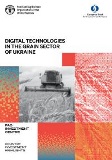
Digital technologies in the grain sector of Ukraine
02/2023
Comprising 30 percent of agricultural output and with an area of 15 million hectares, the grain sector is a pillar of Ukraine’s agriculture. In 2020 Ukraine exported USD 9.4 billion worth of cereals, the second largest exporter after the United States of America, making Ukraine a major contributor to global food security.
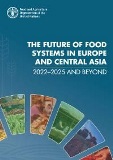
The future of food systems in Europe and Central Asia - 2022–2025 and beyond
11/2022
The document provides a comprehensive analysis of the future of the food systems in Europe and Central Asia based on a qualitative review of the literature and information available at the time of drafting. Specific attention will be given to (i) economic growth; (ii) natural resources and climate change; (iii) rural development; (iv) agri-food trade and policies; (v) innovation and digitalization; (vi) food systems developments; (vii) food and nutrition security; (viii) food safety.
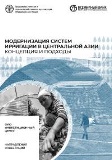
Modernizing irrigation in Central Asia
11/2022
Modernizing irrigation systems in Central Asia could increase the productivity of the irrigation sector to meet growing food and export demand, while also improving farmers’ livelihoods.

Special report – FAO Crop and Food Supply Assessment Mission (CFSAM) to the Republic of Moldova
11/2022
At the request of the government, an FAO Crop and Food Supply Assessment Mission (CFSAM) visited the country from 10 to 28 October 2022 to estimate the 2022 crop production and forecast the country’s import requirements during the 2022/23 marketing year (July/June).
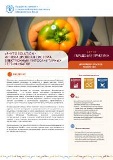
ePHYTO solution - An innovative system for electronic phytosanitary certificates
02/2023
This good practice factsheet introduces the ePhyto Solution, an innovative system for issuing and exchanging phytosanitary certificates in electronic form in import and export of plants and plant products. The ePhyto Solution supports this objective by responding to the needs of the twenty-first century. Electronic certificates eliminate several drawbacks of paper certificates, such as damage or fraud, and the ePhyto Solution increases the efficiency of their exchange.
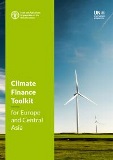
Climate Finance Toolkit for Europe and Central Asia
01/2022
This Climate Finance toolkit was prepared by the Regional Office for Europe and Central Asia of the Food and Agriculture Organization of the United Nations, jointly with the United Nations Environment Programme Regional Office for Europe and Central Asia, as part of the efforts both organizations systematically conduct to support countries to access scaled-up sources of climate finance.
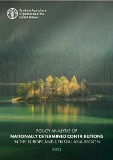
Policy analysis of Nationally Determined Contributions in the Europe and Central Asia region
01/2022
This publication has the objective of providing a comprehensive analysis of the key trends in greenhouse gas (GHG) emissions and vulnerability to climate change in the Europe and Central Asia (ECA) region, compiling the most relevant efforts and progress reported by countries in the implementation of mitigation and adaptation goals and measures in recent years.
